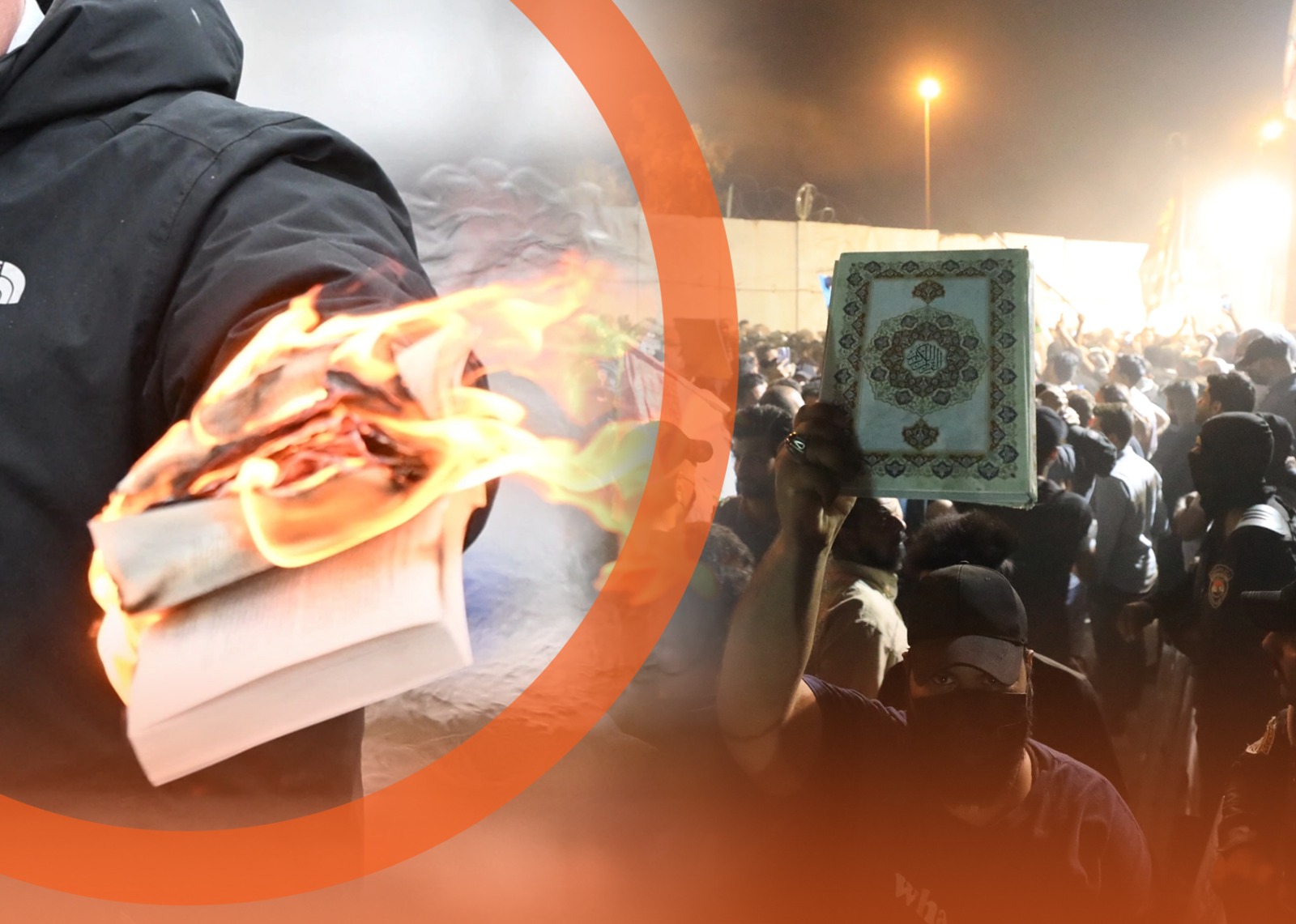The burning of a copy of the Qur'an by an Iraqi refugee sparked mixed reactions in the Islamic world and around the world, but in Iraq, especially at the Shiite level, strong reactions carry different interpretations. This is due to their nature, which are raids on embassies and violations of international law regarding the protection of diplomatic envoys under the Vienna Convention. These reactions also coincided with previous internal problems, most notably the recent uproar between the Sadrist movement and the Islamic Dawa Party led by al-Maliki regarding the targeting of Ayatollah Muhammad al-Sadr, the founder of the Sadrist movement and the spiritual father of Asa'ib Ahl al-Haq (AAH ) and many other Shiite politicians
Among the Shiite reactions to the incident of burning the Qur’an in Sweden, al-Sadr was the most insistent when he threatened that “if the government does not take a stand,” he will act in his own way. Indeed, later supporters of Muqtada al-Sadr raided the Swedish embassy (July 20, 2023), which led to The birth of another crisis for Iraqi diplomacy, while the reactions in Iran and Saudi Arabia, the two largest Islamic poles in the region, were more formal and diplomatic. A statement of condemnation was issued by the Foreign Ministry in Saudi Arabia, as well as in Iran, and the two countries summoned the Swedish ambassador to protest. There is no other Islamic and Arab country where the situation has deteriorated as much as the situation in Iraq. Part of the reason for this, in addition to the EXTREME REACTION of Sadr and his supporters, may be due to the fact that the burner of the Qur'an (Silwan Mumika) is Iraqi origin and at the same time offended the Iraqi flag and the image of Muqtada al-Sadr as well.
After Sweden withdrew its ambassador from Baghdad and Iraq withdrew its ambassador from Stockholm, al-Sadr accused his opponents of remaining silent while doing everything he could in the "Quran revolution". While the coordination framework coordinated the protests for the same purpose and supported the measures taken by the prime minister against Sweden, but what narrows the coordination framework from a move like al-Sadr is their presence in power, so they cannot act strictly like al-Sadr against Sweden and the West. This is one of the angles that al-Sadr used to break the silence on the one hand and harass his ruling Shiite rivals on the other hand. This forced them to follow his reactions.
It is not possible to question al-Sadr’s sincerity in defending the Qur’an or the Iraqi flag. The first is because the Islamic sanctity of the Qur’an is very great, and it cannot be taken lightly with any movement that targets the Qur’an. Muqtada al-Sadr is a religious reference who must take a stand on such incidents. The second (the Iraqi flag) is a symbol of Iraqi patriotism. It has always been a slogan of Muqtada al-Sadr, but compared to the positions of Ayatollah Sistani, the supreme Shiite cleric and leader of the Iranian revolution Ali Khamenei , al-Sadr's actions are much more severe. In a letter to Antonio Guterres, al-Sistani condemned the Swedish incident and called on the United Nations to prevent the recurrence and change of laws that allow the burning of the Qur’an and threaten coexistence. On the other hand, despite his condemnation, Ayatollah Khamenei demanded that those responsible for burning the Holy Qur’an be handed over to Islamic countries.
On the Shiite level, only al-Sadr and Hassan Nasrallah in Lebanon took advantage of the Swedish incident to fight the West and attack their new values and demanded the expulsion of the Swedish ambassador from Islamic countries, while on the Sunni level there was no severe stance. In earlier years, there was a prevailing opinion among the Muslim diaspora in Europe to ignore those who sought fame by attacking religious holy places.
Back in Iraq, it is believed by many that al-Sadr is making the Qur’an the beginning of his return to political life after he decided to withdraw his 73 deputies in parliament in mid-June 2022 and kept silent for months in Najaf. If these readings and signs are like this, local elections ( The provincial councils are hot and competitive awaiting Iraq at the end of this year, and some indications and interpretations believe that they will delay the electoral process because the participation of the Sadrists and the prime minister requires time and preparation.
Now that al-Sadr is isolated, the Shiite coordination framework is working to consolidate the pillars of his strength, and the Sadrists are waiting at the level of the masses and cadres, as they realize once again that evading power and the political process can weaken them. This political stagnation can only be ended with the decision of the movement's leader, Muqtada al-Sadr, and is evident from his strong reactions to the Qur'an and his defense of his father's legacy and religious stance. On the one hand, this is the beginning of a return to activism, and on the other hand, it is part of a plan to tire and harass his rivals committed to power who cannot have fiery and “revolutionary” rhetoric against Sweden, Denmark and American statements while both sides are fighting the over which is the real Shiite “resistance” .



